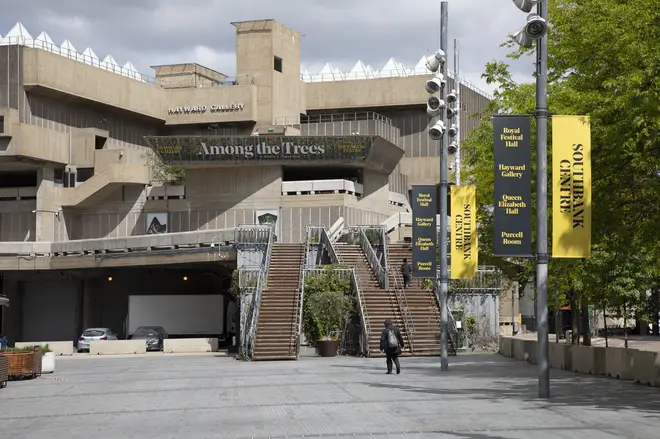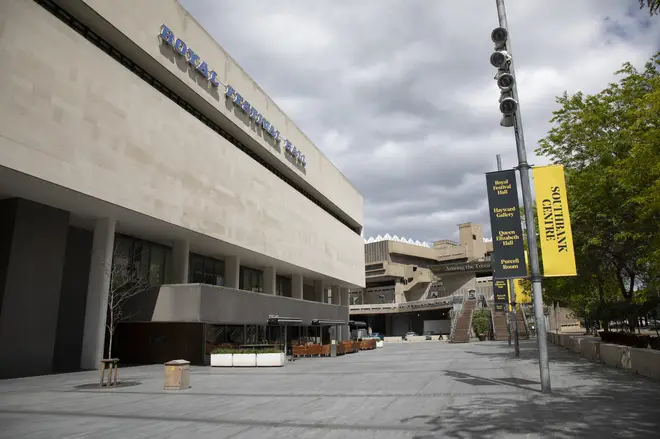London’s Southbank Centre at risk of closing until ‘at least April 2021’
25 May 2020, 11:24 | Updated: 25 May 2020, 11:52

The UK’s largest arts institution details devastating financial pressure caused by the impact of COVID-19.
The Southbank Centre has announced that it’s at risk of closure until “at least April 2021” due to the economic impact of COVID-19.
Disclosing details of “crippling financial pressure” as its reserves run dry, the arts and cultural institution – the largest in the UK – has revealed that a “best case scenario” forecast would see a £5 million loss at the end of the 2020/21 financial year.
The Southbank says to get to even this position would involve receiving £4 million continuing support from the Government furlough scheme, and exhausting its Arts Council England grant to maintain its closed buildings. It would also involve redundancies and, the Southbank says, “the organisation will cease to be a going concern before the end of the year if further urgent support is not secured”.

The Southbank Centre confirms that it’s unlikely there will be artistic activity throughout 2020/21 due to social distancing measures restricting the sale of tickets.
This is because reopening the Southbank venues at the restricted capacity (30 percent) required by current social distancing restrictions means the organisation would lose more money by opening than it would generate. To present anything like a normal range of events, the Southbank has found, would see financial losses rise to around £11 million (after furlough support and the aforementioned Arts Council grant).
The Arts Council England grant annually represents 37 percent of the Southbank Centre’s income, so it is reliant on income from ticket sales, cars, restaurants and other commercial activity, which has been hit by the coronavirus pandemic. The mandatory closure of venues, bars and restaurants in the face of the spread of COVID-19 has seen a loss of 60 percent of its income from these areas.
Click here for the latest coronavirus advice from the NHS >

Walk through Philharmonia Orchestra's Universe of Sound
The Southbank today makes urgent recommendations to the government to support the cultural sector by extending the furlough scheme beyond October for the sector, and developing large-scale intervention to support the arts sector financially. It also recommends that the government supports the self-employed artists and musicians who don’t currently qualify for the current financial support schemes created in response to COVID-19.
Chief executive of Southbank Centre, Elaine Bedell, says, “It is with an incredibly heavy heart that we today share further details about the future of the Southbank Centre. We know we are not alone in this and stand with our friends, partners, and colleagues – both here in the UK and abroad – during this time of unprecedented challenge.”
Bedell continues, “We’re doing all we can to safeguard the Southbank Centre we currently know and love for the years ahead. However, this crisis has hit hard, and we join a number of other organisations and venues in sounding the alarm about the long-term health of UK arts and culture.”
Read more: Northern Ballet ‘loses £1m due to coronavirus pandemic >
The Southbank Centre presents over 3,500 events a year, of which over 40 percent are free. The Centre is home to eight orchestras, including Classic FM’s Orchestra on Tour, the Philharmonia Orchestra.
The Southbank is now making preparations to cancel events from September to November 2020, and is considering broadcasting concerts from behind closed doors in Autumn 2020 and Spring 2021.
Today’s announcement comes as the Southbank Centre releases the initial findings of a new report by independent economics consultancy Hatch Regeneris.


































